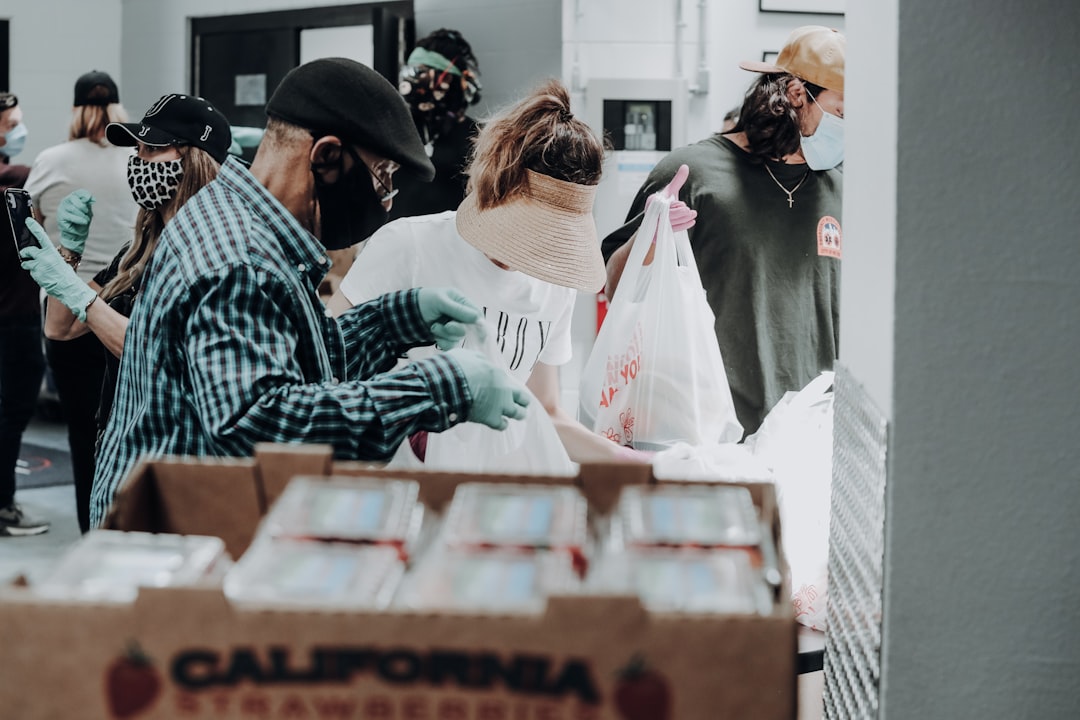
Thirty years ago, I got involved in volunteer work to improve the lives and living conditions in an urban neighborhood. Over five years we generated a wide range of projects: Tutoring elementary school students, teaching adults to read, distributing Thanksgiving dinners to food-challenged families, sponsoring classes for women entrepreneurs, clothing drives, book drives, and partnering with existing neighborhood groups. Many of these projects, I’m happy to say, are still ongoing.
An important takeaway from that experience was how hard it was to get volunteers for long-term projects – tutoring, teaching, relationship building – that required the volunteers to make consistent, long-term commitments. There were never problems enlisting volunteers for the book drive, the clothing drive, or annual food distributions. Volunteers eagerly flocked to those one-and-done efforts, which instilled in them good feelings about their contribution, at minimal personal cost.
I was reminded of that lesson while reading a new research study, The Value of Volunteering, by the Mather Institute. Those of us who have retired, and those of us thinking about retiring, are reminded regularly by spouses and friends that volunteering is a far more useful activity than streaming the 13th episode of Hollywood Celebrity Breakups. After all, we have an abundance of free time, and so much work needs to be done in the world: People are hungry, children are lonely, parks are filled with litter, homeless men and women need shelter, shut-ins would love some company…the list of needs is endless.
But volunteering is not as simple as our well-meaning friends seem to believe. The Mather Institute study makes that quite clear. Stay with me as we do a deep dive into the volunteer experience.
Why Volunteer?
Most people say they volunteer because they want to help other people. That’s an excellent reason. There’s nothing wrong with altruism.
But here’s another, more compelling reason: Volunteering is also good for you! Numerous studies have shown that older adults who volunteer enjoy better physical, mental, and cognitive health than those who do not. A 2021 study found that older adults who volunteered for more than 100 hours per year reported greater satisfaction with life, more purpose, and lower levels of depression, hopelessness, and loneliness.
That may be, but the truth is that only about 4% of older adults volunteer that much. Nearly one-third report volunteering “once a year or less.” Another 20% volunteer “a few days a year.” These figures support my past observations about the popularity of one-and-done efforts.
There is another aspect to clarify. Researchers divide volunteer activities into two types. Formal volunteering is performing unpaid work for an organization – in other words, the work we typically think of when we hear the word “volunteer.” That can encompass a wide range of activities, from tutoring young students to lending your expertise as a nonprofit board member. Informal volunteering, on the other hand, is any direct assistance to someone outside of your household. That includes babysitting the grandchildren (yes!), helping a neighbor weed her garden, taking your mother grocery shopping, the neighborhood decorating contest, or driving Aunt Edna to her doctor’s appointment.
There are demographic differences in who is most likely to participate in the two types, according to the Mather Institute study. The likelihood of engaging in formal volunteering increases with income. The likelihood of participating in informal volunteering also is greater among adults with more than a bachelor’s degree, as well as those who are separated or divorced.
What’s In It for You?
The Mather Institute study also looked at how volunteering impacted life satisfaction among older adults. While frequent volunteer activity of either type was associated with greater life satisfaction, formal volunteering had significantly greater impact on the volunteer’s satisfaction. However, older adults are more likely to engage in informal volunteering. The roles of volunteers also made a difference. The roles that satisfied older adults the most were collecting, preparing, serving or distributing food; fundraising; general labor such as cleaning up a neighborhood park; tutoring or teaching; or mentoring (or coaching) youth.
Bottom line, a lot of older adults engage in volunteer activities that aren’t likely to increase their life satisfaction. And the types of roles that yield the most satisfaction – such as mentoring, tutoring, or teaching – are the activities fewer adults are likely to take on.
So yes, volunteering of any type is good for society, and anything that gets you away from a video screen is good for you. But the types of volunteering that offer the most positive psychological benefits to the volunteer are the ones that take the most time and the most commitment. They are the activities that require an open mind, an open heart, and a willingness to engage another human being in what philosopher Martin Buber calls an “I - thou” relationship.
Share the Story of Your Retirement
For a research project, I’m looking for people who have retired within the past five years to talk about their experiences transitioning from work to non-work (or less work). I’m also looking for people who plan to retire within three years. If you’re willing to be interviewed, please contact me at don@donakchin.com for details.



I've been volunteering 3-7 hours per week since 2010. It's a great way to make new friends, and it's the gift that keeps on giving [back] to your world and to yourself.
I love your review of the volunteer options and how people fit into the scene. Eye opening.
I'm volunteering again, this time as the docent for the Art Gallery at our thrift store that supports the animal shelter. It's a great way to connect with people and help the animals. I'm loving it! The "job" requires 4 hours any day I put myself on the schedule. So, I fit in days during the week when I'm not going to be batty-crazy. I better understand the challenges the thrift store manager has.